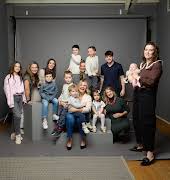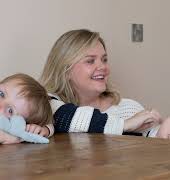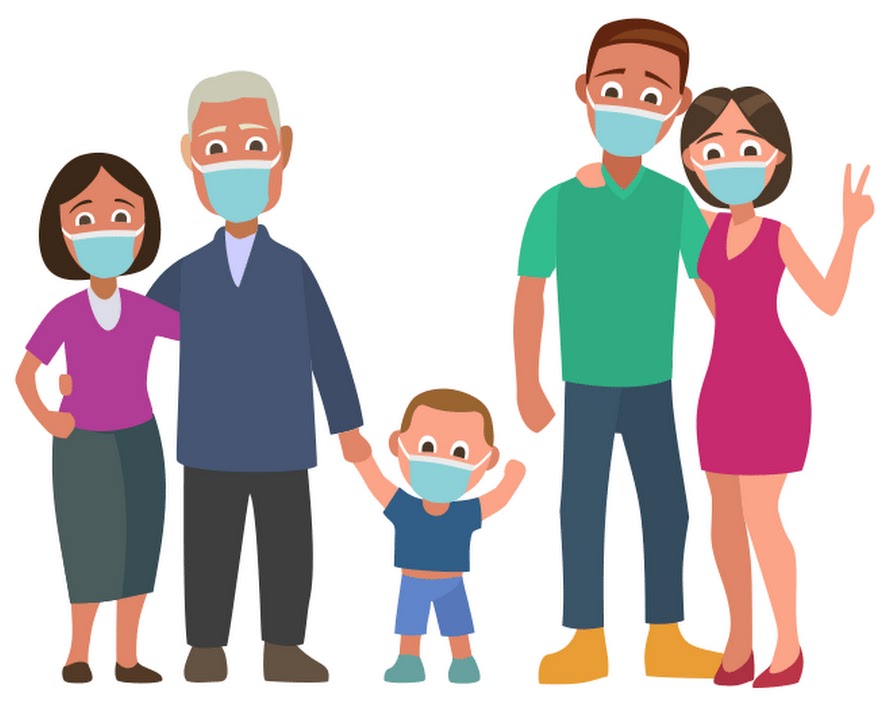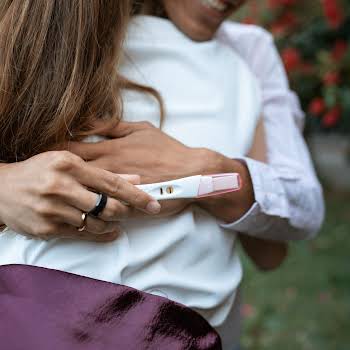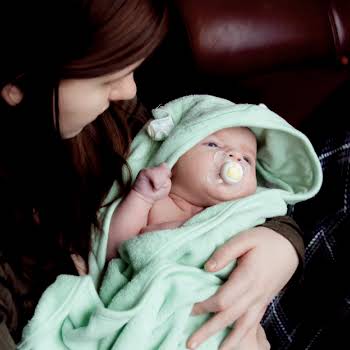By Eva Hall
27th Apr 2020
27th Apr 2020
Sponsored By

One in six women in Ireland will experience fertility issues. To mark Infertility Awareness Week, we speak to two women on how Covid-19 is impacting their IVF treatments and aftercare.
There is hope that Irish IVF patients may get to resume treatment sooner rather than later as new guidelines have been announced by the European Society of Human Reproduction and Embryology (ESHRE).
Hundreds of patients have been left in limbo since Covid-19 closed businesses around the country that were not deemed ‘essential services’.
Last week however, the ESHRE said in a statement, “As the Covid-19 pandemic is stabilising, the return to normal daily life will also see the need to restart the provision of ART (assisted reproductive technology) treatments.
“Infertility is a disease and once the risk of infection is decreasing, all ART treatments can be restarted for any clinical indication, in line with local regulations.”
Paula, a 35-year-old nurse, was due to start her IVF transfer at ReproMed in Dublin in two weeks’ time.
“It’s a hard thing to take, because it’s an extremely essential business,” says Paula, who works in a maternity hospital. “It’s very time-centric, there are so many women who are already on a timeline because they’ve been trying for so many years and they’ve gotten to this point and now all of a sudden it’s pulled.”
Paula was due to start a new round of IVF after ReproMed obtained four good-quality embryos. She isn’t sure when her treatment will resume yet.
“It’s very difficult because it’s the only thing that you can have control over in this whole IVF situation,” she says. “The only thing you have control over is planning to have IVF in the first place and being able to say when you’re going to go to have your treatment done.”
This will be Paula’s second round of treatment with ReproMed, having conceived her first baby, a son, through IVF with the clinic almost two years ago.
Paula is described as ‘unexplained infertility’ — in that doctors cannot explain why she can’t conceive on her own. After months of trying to conceive with her husband, then aged 30, Paula sought help from a gynaecologist.
“They’d done all of their baseline tests and they said that everything was fine. I was advised to try again for another six months. They gave me advice regarding supplements and I started acupuncture, and after another six months, nothing,” recalls Paula.
Paula had more investigations done, including ovulation stimulation and follicle tracking scans, all which showed no obvious signs of there being an issue.
“Then we decided that we needed to go to the next step, which was to go to a fertility clinic,” says Paula.
After researching which clinic was the right fit for her and her husband, Paula also had to consider the financial implication of seeking fertility help.
One round of IVF can cost €4,500, according to Aoife Corley, midwife manager at ReproMed.
Paula, like so many others on the IVF journey, turned to family for help after already paying hundreds in her fertility journey. “We’d no savings because we’d just paid for a wedding and a house,” she says.
Paula initially opted for IUI treatment, which involves directly inserting concentrated sperm into the uterus at the most fertile point in a woman’s cycle.
“Every time I tried something once, I thought it was going to work,” says Paula. “When I started with the gynaecologist clinic, I was really hopeful and I was saying ‘this is going to work’.
“With my first IUI I was convinced that that’s all we needed. The samples were good, the eggs were good.”
Three IUI attempts failed for Paula. “At that stage we’d never had a positive pregnancy test,” she says, and by the third attempt, she describes it as “ticking a box”.
Someone who can relate to Paula’s struggle to conceive is Leona, a Carlow-based mum who works in accounts.
After having three children, Leona struggled to conceive a fourth child with her new husband. She is described as ‘secondary infertility’.
Leona suffers from polycystic ovaries, or PCOS, which is a disorder that sees the ovaries develop follicles, and involves infrequent, irregular or prolonged periods. It may result in the body not releasing eggs regularly. She says it wasn’t “too drastic” when she had her first three children.
After seven years of trying for a baby, and five devastating miscarriages, Leona sought help. “It turned out that my PCOS had become so severe that I wasn’t ovulating and if I was, it was obviously very poor quality and that was making genetic issues which were causing losses,” she says.
“So we went down the road — very naively — of IVF. I thought because my body knew what to do, that once we got the embryos everything would be fine.
“We were elated that we got eight good-quality embryos the first time. We naively went in for our first transfer, and we thought ‘it can’t fail’. I was pregnant from that moment, there was no doubt in my mind,” says Paula, who admits she and her husband of nine years were lucky to receive financial help from their family on top of savings and loans.
“We wanted a baby more than anything else. We didn’t think that it was going to be a journey. We thought we were going in [to the clinic], we’re going to get this help, and we’re going to be pregnant. I was of the mindset that ‘I’m not infertile, I’ve had children, this is very possible for me’, and all I needed was a little bit of help.
“When the results of the first transfer came back that it hadn’t worked and we’d had implantation failure, we were absolutely shattered,” she recalls.
Even with a heterosexual couple undergoing IVF treatment, it is still the woman who bears the brunt of the physical treatment. As ReproMed nurse Aoife outlines, the woman will undergo intense hormone medication and injections before a transfer.
“IVF is a big commitment,” says Aoife. “It’s a short-term thing, but you’re going to be asked to attend appointments at short notice, to tie yourself to certain times to take your medication, you’re going to be asked to show up at short notice for procedures sometimes, and women need to be ready for that.”
“Physically, it’s a lot harder on the woman,” says Paula. “But emotionally, I think it’s equal. Men feel a little bit helpless in it all because you’re doing everything and you’re putting all these drugs and medications into your body.”
“My husband will say quite openly he felt like he had nothing to do with any of it,” says Leona. “He felt very much on the outside, in that he couldn’t take the injections, he couldn’t do anything for you, he had to watch you go through all of this.
For Paula, IVF was her next step after the IUI treatment didn’t work.
“When we transferred the first one, it was an excellent embryo, but unfortunately it didn’t work, so we had another negative test. That was a massive blow, because you think this is the final thing that’s going to get you pregnant.”
Paula and her husband took a break from treatment. “I stopped. I was on a really strict diet which was very restrictive and I stopped all the supplements and just took a complete break from everything.
“My husband was always very much of the mindset that we would fill the house with a baby, whatever way we would do it.”
A few months later, Paula and her husband decided to transfer the second embryo that they had frozen from the first collection.
Leona had a similar journey, in that when her first two transfers failed, she also took a break from treatment.
“We gave ourselves a few months because we really, really needed them. We stopped feeling sorry for ourselves and we started to focus on us as a couple again. I think that’s really important because you lose that sense of being a couple, the fun of trying to conceive and the joy of it all is taken away from you when you can’t.”
On Leona’s third IVF transfer, using their sixth embryo, she had a double transfer. “One embryo failed, and we had to thaw a third. And this pregnancy actually started out as a twin pregnancy until eight weeks, and then we had a vanishing twin. But thankfully, the baby that had held on is doing really well.”
Leona is currently due her fourth baby — her first with her husband — in October 2020.
“It can be hard for people to understand when you have children, why you would put yourself through all of this,” she says. “But there is something in all of us, there’s a want or a need to expand on your family. If we didn’t do it we would have really regretted it.”
For Paula, her second transfer finally resulted in that long sought-after positive pregnancy test.
“I want to give my son a sibling, so we are trying IVF again,” says Paula. Now, she is waiting to see if restrictions are lifted and whether she can go ahead with her transfer for a second round of IVF nearly two years on.
For Leona, she too is hoping restrictions are lifted by the time her due date comes around.
“I feel guilty saying this, because obviously I’m overjoyed to be pregnant, and there are so many people that would give everything to be in the position that I’m in now, but I can’t help feel like a lot has been stolen from us. My husband can’t be at our scans, he can’t be at any of the appointments that he would have liked to be involved in.
“The restrictions are totally understandable, but I hope they don’t get any stricter and he is allowed in to the hospital for the birth.”
Regarding reopening its clinic, ReproMed said in a statement, “We currently aim to reopen our clinics to phase in our fertility services in early May.
“Covid-19 remains the greatest public health issue that any of us will have experienced in our lifetimes, and we must continue to adhere to strict social distancing guidelines when we are treating patients.”
For more information on ReproMed or to book a consultation, visit the website.
You can follow Paula’s IVF journey on Instagram here.
You can follow Leona’s IVF journey on Instagram here.




